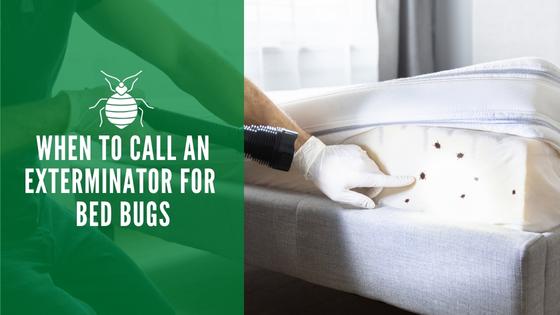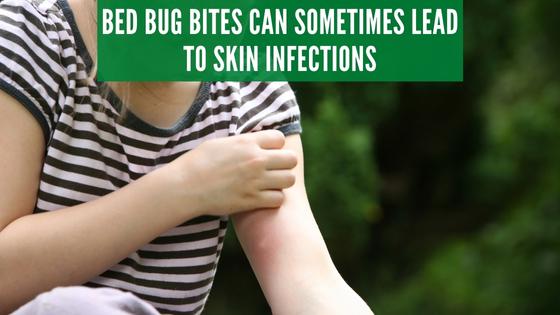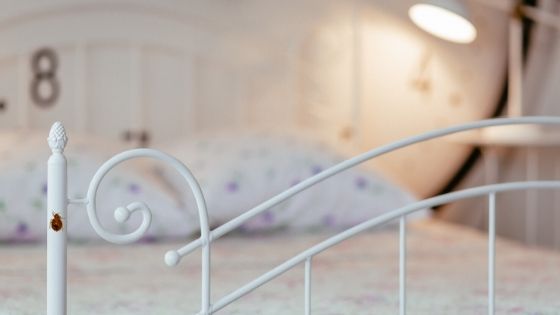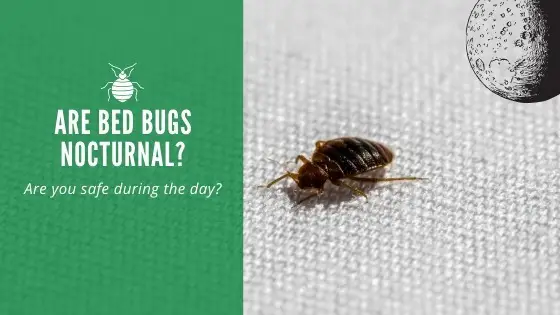When to Call an Exterminator For Bed Bugs

Bed bugs now exist in every state, and their spread has reached epidemic levels. While it is clear that bed bug infestations don’t have anything to do with your cleanliness, there remains a stigma about having these nocturnal biters in your home.
Since bed bugs don’t respond well to most over-the-counter pest control methods, it helps to know to call an exterminator at the first sign of a suspected invasion. With bed bugs, it’s better to be safe than sorry since they tend to spread at a rapid pace.
Signs of Bed Bugs
Most people take home bed bugs after traveling on vacation or picking them up from someone else’s house. You can also bring these irritating bugs inside when you take home secondhand furniture and clothing that is already infested.
Checking hotel rooms and used items for bed bugs before you use them helps prevent infestations. At home, you’ll want to check regularly for signs of a problem, but regular inspections after traveling can help you catch a new infestation faster.
Waking Up With Red Marks
Bed bug bites can be confused with ones from other types of insects, but they do leave a few hallmark characteristics. Bed bug bites typically appear in the morning since the insects feed on your blood while you sleep.
A bed bug also tends to feed, stop and move to a new spot to eat again. This creates small rows of bites that usually occur in groups of two or three. You’re also more likely to see these bites on exposed skin, such as your arms and legs.
Seeing Dark Specks On Bedding
About 20% of the time, bed bugs void out former blood meals as they feed on your skin. This leads to black marks showing up on your clothing and bed sheets. On top of fecal matter, your skin may also bleed briefly after a feeding, which leads to more stains.
Finding a Possible Bed Bug
These bugs are only about the width of a credit card, which makes it easy for them to hide out when they aren’t crawling around to feed on your blood. By the time you see active bed bugs, there might be hundreds or thousands more lurking around your home.
The best places to spot bed bugs are around mattress seams and in the corners of rooms. Even a small crack in your headboard is enough space for a bed bug to find refuge.
One trick you can try to spot these insects is turning off the lights in a room to trick them into thinking it is feeding time. Then, you can shine a flashlight onto the mattress or other suspected infested area. If you detect movement or see actual bugs, you know you need to call an exterminator.
Spotted signs of bed bugs? Connect with a bed bug exterminator today!
Dangers of Bed Bugs
There aren’t any recorded incidences of bed bugs spreading diseases such as HIV, but they can still cause many problems if you allow them to live in your sleeping spaces. On top of dealing with itchy bites, you could be facing several other serious dangers.
Allergies and Asthma
People sensitive to bed bug bites may find that those little red marks turn into larger welts. In most people, the bites will gradually fade over one to two weeks, but they can become widespread rashes in sensitive people.
Allergic reactions can also involve respiratory responses. Asthma can be accompanied by anaphylaxis symptoms that include a drop in blood pressure and, eventually, shock if a person doesn’t receive prompt medical treatment.
Skin Infections

Absentmindedly scratching a bed bug bite can lead to a bacterial skin infection. Considering how itchy these bites can be, it is not uncommon for secondary infections to develop that require further medical treatment.
Mental Stress
Most people understand that they aren’t responsible for the infestation, but that still doesn’t make it easy to cope with the idea of having hundreds of bugs crawling on you as you sleep.
People who cannot get an infestation under control may struggle with insomnia and other signs of mental stress. The fear of dealing with bed bugs is so real that some people need regular professional inspections to feel safe.
If you genuinely fear bed bugs and have known risk factors, such as frequently traveling for work, then it might be worth calling an exterminator just for reassurance that you’re safe.
The Best Time to Call a Bed Bug Exterminator
Bed bugs are frequently misidentified, and thinking that you just found a flea from your pet could cause you to miss out on the chance to end the problem sooner.
Using the wrong kind of treatment can also delay fixing the problem since many common pesticides don’t reach into the tiny spaces where bed bugs hide.
How Do Exterminators Get Rid of Bed Bugs
If you’ve heard people say that you have to trash and burn all of your belongings to get rid of bed bugs, it hopefully helps to know this is never the right solution. The theory that these bugs are hard to treat is correct, but exterminators have the right tools for killing these pests.
Use Heat and Steam Treatments
The death rate for bed bugs exposed to heat depends upon the temperature used and the length of exposure to high temperatures. Bed bugs can’t survive for more than 90 minutes at temperatures over 113 degrees Fahrenheit. If the temperature increases, they can die within less than half an hour.
Since humans aren’t comfortable at these high heat levels either, you’ll be asked to leave the room or your home while the exterminator uses this method.
The slight inconvenience is worth it, however, since this method has a high success rate. Heating the air in a room is one way to hit the tiny cracks and crevices where bed bugs are most known to hide.
Need help dealing with bed bugs? Connect with a bed bug exterminator today!
Applying Pesticides
The U.S. Environmental Protection Agency has over 300 products that are registered for use against bed bugs. These include pyrethrins, desiccants, and insect growth, regulators. Since most people don’t have extensive knowledge of which pesticides are safe and how to use them in a home, it is best to leave this type of control method to the professionals.
Some exterminators combine pesticides with heat treatments to double up on the attack. Others might use pesticides over heat to treat a small area of a property that isn’t enclosed by four walls and a roof.
Prevent Future Occurrences
The final thing that an exterminator can do is educate you and your family on how to prevent bed bugs from entering your home again. For instance, you might have a pest control tech inspect secondhand furniture that you just can’t avoid bringing home, such as an antique piece from a loved one.
Following the initial treatment, your exterminator may also request a final inspection to ensure that every last sign of bed bugs is gone. Doing follow-up treatments is your best way to know that you can finally sleep easy at night again.



